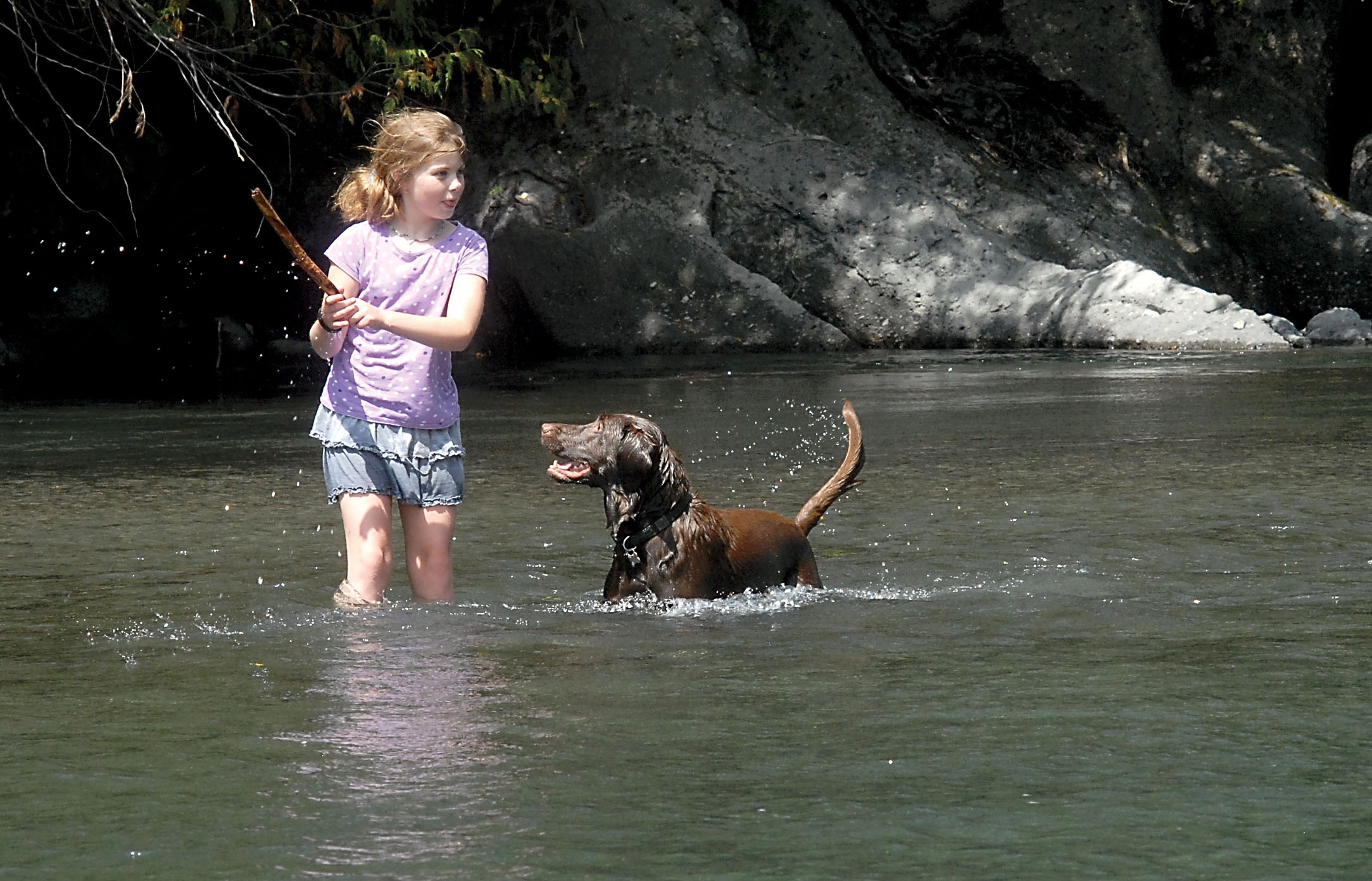PORT ANGELES — Residential and business water usage is trending upward despite drought-inspired voluntary city water restrictions imposed June 17 to protect Elwha River fish habitat.
Craig Fulton, city public works and utilities director, told City Council members this week that year-to-date average daily water demand by city customers through June was 2.42 million gallons, compared with 2.32 million gallons in the same 2014 period.
“Demand is not slowing down,” Councilman Brad Collins responded.
“It’s increased, and rainfall has not.”
Port Townsend City Council members this week acted in a like manner to their Port Angeles counterparts.
They approved an ordinance Monday that declares a water emergency and gives City Manager Dave Timmons the authority to call for voluntary conservation.
The council action included a contingency plan to suspend operations at high-water-usage Port Townsend Paper Corp. if the drought persists.
In Port Angeles, Fulton said Thursday it’s too early to determine if usage will continue to exceed 2014 levels.
But if Port Angeles water users do not cut water consumption, the city could face state or federal intervention, he said.
Residents and businesses appear to be watering their lawns and gardens more because of the drought, Fulton said.
Some businesses in particular have remote-controlled irrigation systems that water daily during the day that business owners have failed to adjust in light of the drought.
“They really need to look at their landscape watering controls,” Fulton said. “We need to review that trend.
“The state and federal governments can intervene because the state does control [and] provide the water rights, and the last thing we want is the state or federal government to be coming in and directing how the water is to be used.”
It doesn’t matter, either, that the city has enough drinking water and the restrictions have been imposed to protect fish habitat.
“I’m sure there are groups of people who say, ‘I’ve got plenty of drinking water, I’m no longer concerned,’” Fulton said.
“But we have to look at not just today.
“If we can develop a robust fish migration again in the Elwha [River], that’s just a positive for this town, from an environmental aspect, from a commercial fishing industry aspect.”
The city has 8,556 water meters, including 1,550 in the urban growth area just east of the city limit under the auspices of the Clallam Public Utility District.
The city also has 18 million gallons stored in five reservoirs that draw water from two sources on the Elwha River.
The city’s Ranney Well is fed from 60 feet below the river’s surface and routes water directly to the city’s water treatment plant.
A National Park Service intake structure also draws water from the river, but it’s surface water.
Historically low water flows for this time of year allow water temperatures to heat up, reducing oxygen levels and providing a breeding environment for bacteria and parasites harmful to salmon.
The Elwha River read at 292 cubic feet per second (cfs) Thursday afternoon.
Fulton and Lower Elwha Klallam tribal marine habitat officials have said 300 cfs is a tipping point for imposing a higher level of protection for marine habitat that is increasingly compromised due to the absence of rain and Olympic Mountains snowmelt.
Gov. Jay Inslee included the North Olympic Peninsula in an area-specific drought emergency March 13, then declared a statewide emergency May 15.
City Council members had already established a Stage 1, public-information-oriented water emergency before they imposed Stage 2 voluntary restrictions June 17.
Fulton told Collins that if the level reached 300 cfs, he would recommend the City Council establish mandatory Stage 3 restrictions.
That could occur at this Tuesday’s 5 p.m. council work session at City Hall if rain does not bulk up the river’s flow, Fulton said.
As of Thursday afternoon, the National Weather Service was predicting a 60 percent chance of rain today, 30 percent Saturday and 40 percent Sunday.
The forecast for Monday: partly sunny.
If Stage 3 is imposed, the City Council could restrict lawn and garden watering to certain days; prohibit exterior hosing of sidewalks, which at least one employee was doing in downtown Port Angeles this week; and limit or ban “such other uses as the council deems appropriate,” according to city ordinance 13.46 (at http://tinyurl.com/PDN-emergency).
Fulton said at Tuesday’s council meeting that he had prepared a memo for council consideration that recommended imposing Stage 3 controls after the U.S. Geological Service’s river flow gauge at the McDonald Creek bridge earlier this month was below 300 cfs, then pulled it after the flow changed overnight to 370 cfs.
“My point is, voluntary conservation is not working,” Collins responded.
Ken Frasl, Western Washington field office chief for the USGS Washington Water Science Center, said Thursday that the fluctuation July 13 was due to a release of sediment from Lake Mills, the reservoir created by Glines Canyon Dam, which along with Elwha Dam was torn down to restore the river’s fish habitat.
________
Senior Staff Writer Paul Gottlieb can be reached at 360-452-2345, ext. 5060, or at pgottlieb@peninsuladailynews.com.
